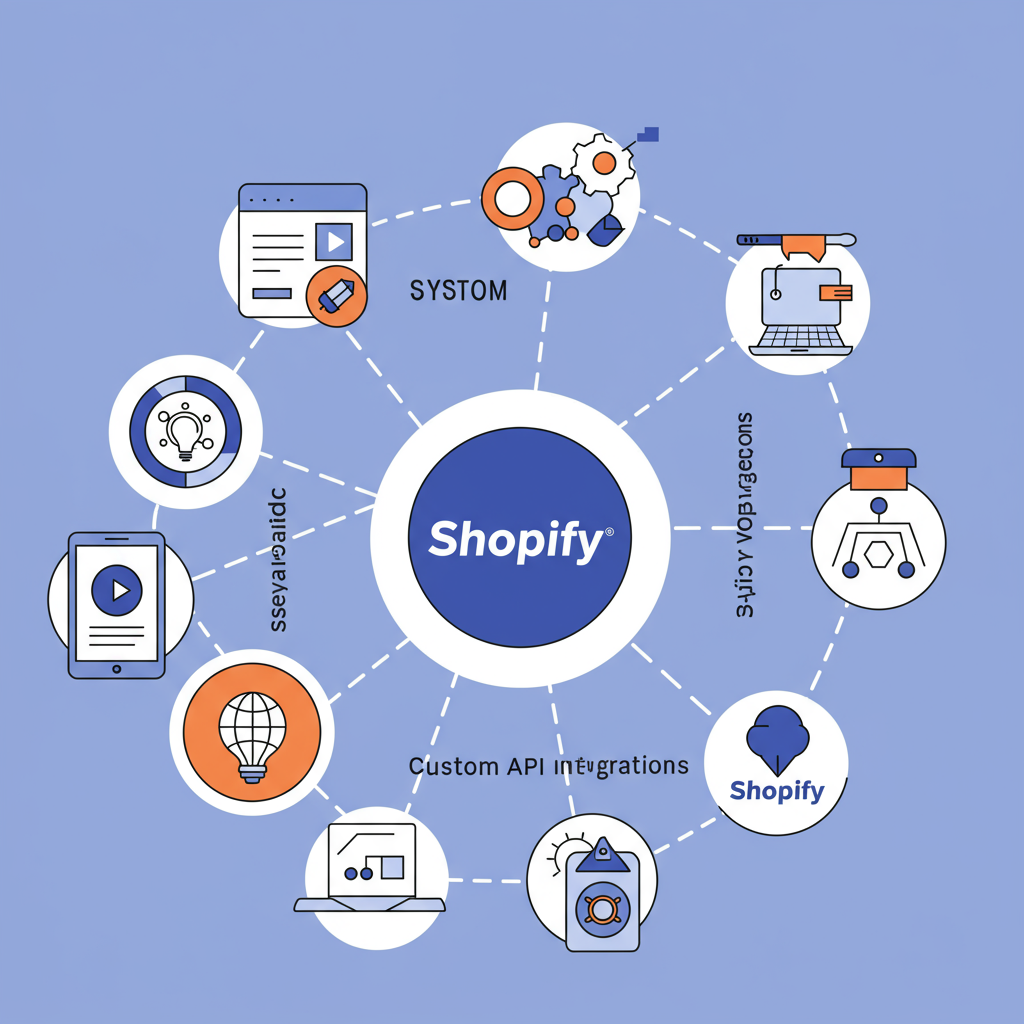Discover how Shopify APIs empower you to build bespoke solutions, automate workflows, and extend your e-commerce capabilities far beyond standard apps.
Hello, fellow merchants! As someone deeply invested in the world of e-commerce, I understand the constant drive to optimize, innovate, and grow our online businesses.
Shopify provides an incredible foundation, offering a robust platform with a vast app store. However, there often comes a point where off-the-shelf solutions just don’t quite fit your unique operational needs or grand vision.
This is precisely where the power of Shopify APIs (Application Programming Interfaces) comes into play. Think of APIs as sophisticated bridges that allow different software applications to communicate and exchange data seamlessly.
For us, as merchants, this means unlocking an unparalleled level of customization and automation for our Shopify stores.
Instead of being limited to what an app can do, we can build bespoke integrations that perfectly align with our specific business processes, customer journeys, and data requirements.
Let me walk you through how these powerful tools can transform your Shopify store, making it more efficient, personalized, and ultimately, more profitable.
At the heart of Shopify’s extensibility are its core APIs. The most prominent ones you’ll hear about are the Admin API and the Storefront API.
The **Admin API** is your backend powerhouse. It allows you to programmatically manage almost every aspect of your store’s administration.
Using the Admin API, you can automate tasks like creating and updating products, managing inventory levels, processing orders, handling customer data, and even configuring discounts.
For example, imagine automatically syncing your product catalog with an external inventory management system, or pushing new customer sign-ups directly into your CRM.
This API is available in both REST and GraphQL versions, offering flexibility for developers to choose their preferred method of interaction.
Then there’s the **Storefront API**. This API is designed for building custom shopping experiences on the frontend, completely separate from Shopify’s default theme engine.
It’s the key enabler for ‘headless commerce,’ where your Shopify backend handles all the product, cart, and checkout logic, while your frontend can be built using any modern web technology.
This allows for incredibly fast, highly customized, and unique user interfaces, perfect for brands looking to stand out or integrate complex interactive elements.
Beyond these two, Shopify offers a suite of other specialized APIs, including the Fulfillment API, Payments API, Marketing API, and Webhooks, each serving a specific purpose to extend functionality.
So, what are the tangible benefits for you, the merchant, when leveraging these APIs?
Firstly, **Automation**. This is a massive time-saver. Imagine automating order fulfillment, inventory updates based on supplier feeds, or even personalized email campaigns triggered by specific customer actions.
Secondly, **Data Synchronization**. APIs ensure that your data is consistent across all your systems – your Shopify store, ERP, CRM, accounting software, and more. No more manual data entry or discrepancies.
Thirdly, **Enhanced Customer Experiences**. With custom integrations, you can build unique loyalty programs, personalized product configurators, or highly tailored checkout flows that delight your customers.
Fourthly, **Streamlined Operations**. By connecting disparate systems, you create a cohesive ecosystem that reduces manual errors, improves efficiency, and gives you a clearer overview of your business.
Fifthly, **Competitive Advantage**. While your competitors might be limited by standard apps, you can build unique features and workflows that set your brand apart.
Finally, **Scalability**. As your business grows, custom API integrations can scale with you, handling increased data volumes and more complex operations without breaking a sweat.
Let’s consider some practical use cases. You could integrate your Shopify store with an Enterprise Resource Planning (ERP) system to manage inventory, orders, and accounting in one centralized place.
Or, perhaps you need a custom reporting dashboard that pulls data from Shopify, your advertising platforms, and your analytics tools to give you a holistic view of your business performance.
For dropshippers, APIs can automate the entire order fulfillment process, from receiving an order to sending it to your supplier and updating tracking information.
If you run a subscription box service, APIs can help manage recurring billing, customer portals, and inventory for your unique subscription model.
You might even build a custom loyalty program that rewards customers based on specific purchase behaviors or engagement metrics, far beyond what a standard app offers.
Now, you might be thinking, ‘I’m a merchant, not a developer!’ And that’s perfectly fine. You don’t need to become a coding expert to harness the power of APIs.
Your role is to understand the possibilities and identify your business’s unique needs. Then, you can partner with skilled developers or agencies who specialize in Shopify API integrations.
Many low-code and no-code platforms are also emerging that leverage APIs, allowing for simpler integrations without deep coding knowledge, though custom development still offers the most flexibility.
When embarking on an API integration project, there are a few key considerations. **Security** is paramount; ensure your developers follow best practices for API key management and OAuth.
Be aware of **rate limits**, which are restrictions on how many API calls you can make within a certain timeframe. Good developers will design solutions that respect these limits.
Finally, plan for **testing and ongoing maintenance**. APIs evolve, and your integrations will need to be monitored and updated to ensure continued smooth operation.
What do you think about this article? Has it sparked any ideas for your own store?
In conclusion, Shopify APIs are not just for tech giants; they are powerful tools accessible to any merchant ready to invest in their store’s future.
They empower you to break free from limitations, automate tedious tasks, create unparalleled customer experiences, and build a truly unique and efficient e-commerce operation.
Embracing custom API integrations is a strategic move that can significantly contribute to your long-term success and growth in the competitive online marketplace.






